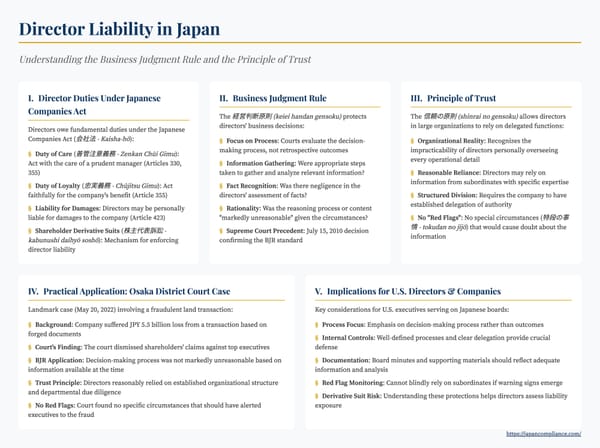TL;DR
Guides U.S. companies through entity selection (rep-office, branch, KK, GK), registration procedures, tax & labor compliance, and ongoing governance essentials for running a legally sound business in Japan.
Table of Contents
* I. Choosing the Right Form of Business Presence
* A. Representative Office
* B. Branch Office
* C. Subsidiary
